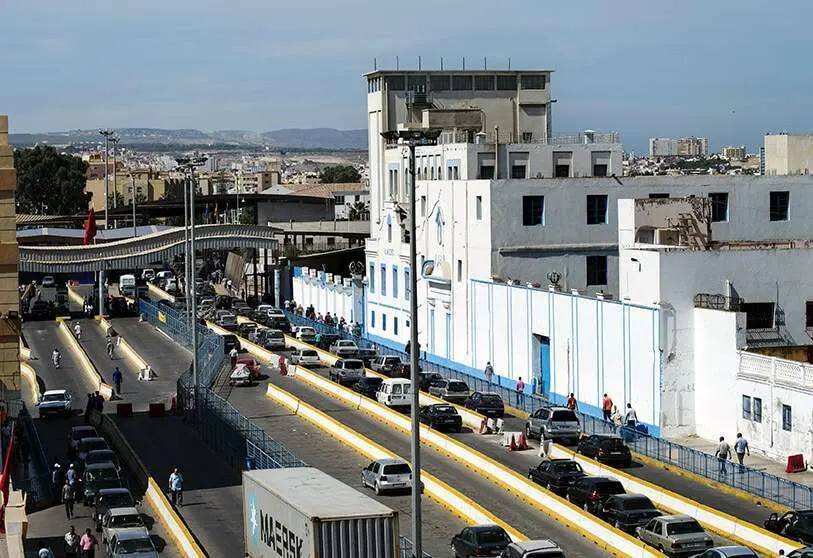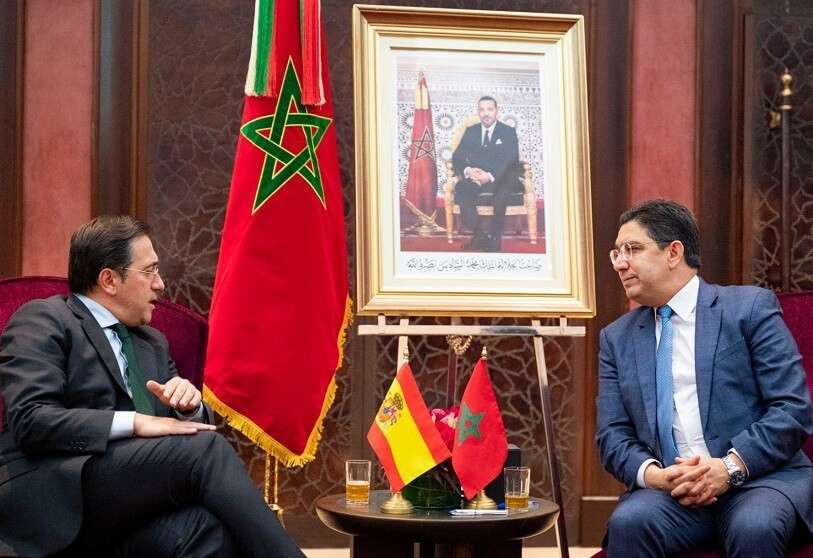España y Marruecos estudian la tercera fase de apertura de las fronteras de Ceuta y Melilla

Negotiations between Spain and Morocco to address the details of the normalisation of transit at the Ceuta and Melilla crossing points are scheduled for Tuesday 7 June. The meeting will be held in Madrid and will take place against the backdrop of Operation Crossing the Strait of Gibraltar (OPE).
The Spanish-Moroccan working group will have to polish the points that are still missing in order to achieve the objectives set out in the joint declaration of 7 April. This involves planning a complete opening of the border crossings at Ceuta and Melilla, which have been operating at a slow pace since 18 May.
The 'gradual opening' announced by the Spanish and Moroccan governments resulted in an open crossing for Moroccans with a visa, EU residence permit or valid passport. The second phase of the plan allowed cross-border workers with valid papers to pass through. This particularly vulnerable group is made up of Moroccan nationals who, before the closure of the borders due to the pandemic, worked in the two autonomous cities, mostly as domestic workers and other manual labourers, while maintaining their residence in Morocco.

According to police sources in the city of Ceuta, the Moroccan authorities are currently not allowing any goods from Spain to pass through to Morocco, a new policy of zero tolerance towards irregular trade. In the opposite direction, from Morocco to the autonomous cities, a maximum of around 10 kg of fruit or vegetables is allowed through. The situation in Melilla is similar to that in Ceuta, by order of the government delegate, Sabrina Moh, who will limit the volume of goods at the border from the 8th.
There have also been some developments in the Moroccan infrastructure at the border crossing points. The Moroccan authorities have reportedly installed a new computer system that will make agents better able to identify travellers, albeit slowly.
The third phase is expected to expand the measures by which goods and people can pass through Tarajal and Beni Enzar, the crossing points of Ceuta and Melilla. According to the representative of the Unified Police Union (SUP) in Ceuta, Francisco Javier Bravo, the most likely scenario is that the meeting on 7 June will deal with the entry and exit of Moroccan nationals or dual European nationals in the framework of the OPE. "Before (the closure of the borders) they came with cars or vans that could fit a pin. I understand that these issues and that of the cross-border travellers will make up the bulk of the meeting's agenda". The SUP also hopes that the Spanish-Moroccan commission will work to guarantee correct working conditions for members of the police forces, which will also allow them to provide a good service to travellers.

Customs in Ceuta and Melilla
According to interior sources, the Spanish-Moroccan working group is not expected to address the issue of borders. On the Moroccan side, Nabil Lajdar, Director General of Moroccan Customs, declared that the geographical conditions of Tarajal and Beni Enzar made it difficult to install the necessary infrastructure for a customs office, something the Ceuta government authorities agreed with. Lajdar qualified his statements to the EFE news agency, and recalled that his directorate general "will implement all the decisions taken by the political authorities", referring to the Ministries of the Interior and Foreign Affairs and the road map agreed at the bilateral summit in Rabat in April.
Following on from these statements, Francisco Javier Bravo, representative of the Unified Police Union in Ceuta, believes that the requirements for setting up a border crossing point with Morocco are not in place for now, and that customs will not see the day for several years. "If a goods crossing point is to be established, the correct areas need to be set up so that each security force can exercise its powers in the most appropriate way".
Police sources in the autonomous city of Melilla also point to a slow evolution regarding the return of commercial customs. It is believed, however, that the meeting on the 7th will put all the eggs in the basket to make a good OPE possible, although Spanish police circles complain about the lack of measures on the part of the governments.









